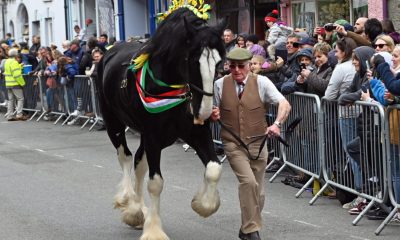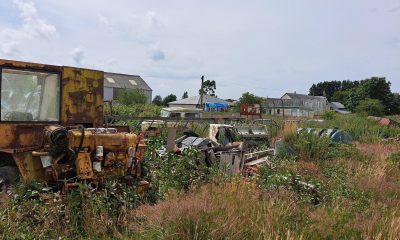Community
Leading hospitality company Loungers announced for Western Quayside development
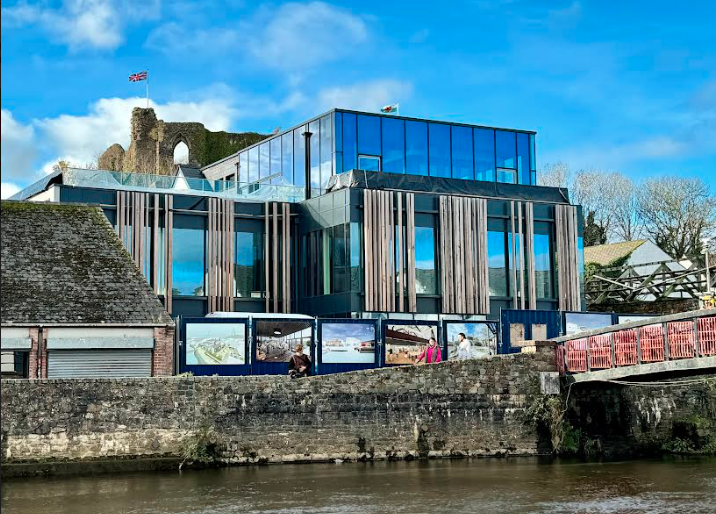
PEMBROKESHIRE COUNTY COUNCIL and Loungers, one of the UK’s leading hospitality companies, are pleased to announce they have agreed headline terms for Loungers to become the first tenant of the fantastic Western Quayside development in Haverfordwest.
Loungers intend to occupy the ground floor of the building which is an important element of the Council’s long-term regeneration plan for the County Town.
Loungers was founded in 2002 and is famous for its family-friendly, welcoming atmosphere, eccentric and spectacular interiors and great food and drink offers.
The company runs Lounge café bars across the UK – including the Cofio Lounge at the Guildhall, Carmarthen – combining elements of coffee shop culture, the British pub and dining.
Cllr Paul Miller, Pembrokeshire County Council Deputy Leader and Cabinet Member for Place, the Region and Climate Change, said: “I’m really pleased to be in a position to announce the first tenancy for Western Quayside. Loungers shares our ambition and potential for the Western Quayside development in the centre of Haverfordwest.
“Western Quayside will play a key role in improving footfall and vibrancy in Haverfordwest and Loungers fits perfectly into that vision.
“An important part of Loungers’ ethos is the community element of its neighbourhood café bars and commitment to work with local groups, charities, organisations and businesses and we look forward to that continuing in Haverfordwest.
“As a Council we have been clear that we will not just sit back and let our town centres decline and this is an important step forward.
“We look forward to announcing further tenants in due course and of course to opening Western Quayside later in 2024.”
Gemma Irwin, Community Manager at Loungers, says: “We’re so looking forward to opening our Lounge in Haverfordwest later this year. We hope our family friendly environment and top-notch food and drink offering will prove popular with local residents.
“We’re passionate about integrating genuinely into the communities we serve so we’re looking forward to meeting everyone and to playing our part at the heart of Haverfordwest’s food and drink scene.
“Anyone looking for a space to host events or groups should pop in once we’re open, we’d love to hear from them and see what we can do to help.”

Community
Anzac Day commemoration service held in Milford Haven
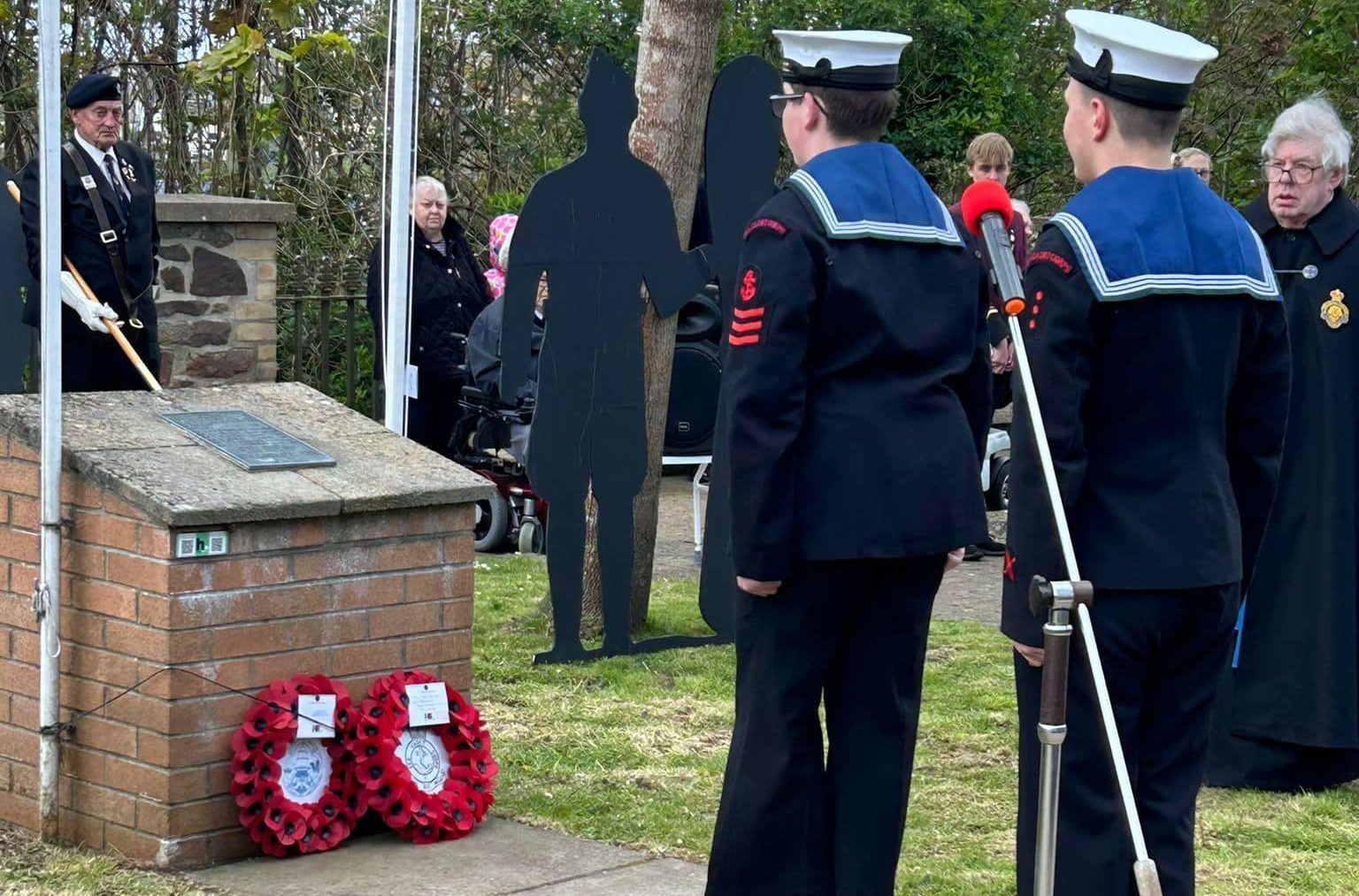
IN a service held on Sunday (Apr 28), the Milford Haven Branch of the Royal British Legion led a poignant commemoration service to mark Anzac Day, honouring the valor and sacrifices of the Australian and New Zealand Army Corps (ANZAC) during the Gallipoli campaign in World War I.
The service, which took place at 11:00am, on Hamilton Terrace, Milford Haven, witnessed a significant turnout.
Attendees included members of the Australian Signals and Signal Company as well as representatives of Milford Haven Town Council and the Milford Haven Sea Cadets.
The service commenced with a welcome and introduction by Lt Col Warren Coetzer, followed by a rendition of the National Anthems of Australia, New Zealand, and Wales, embodying a spirit of unity and remembrance. The anthems were a moving tribute to the camaraderie and international bonds formed in times of conflict.
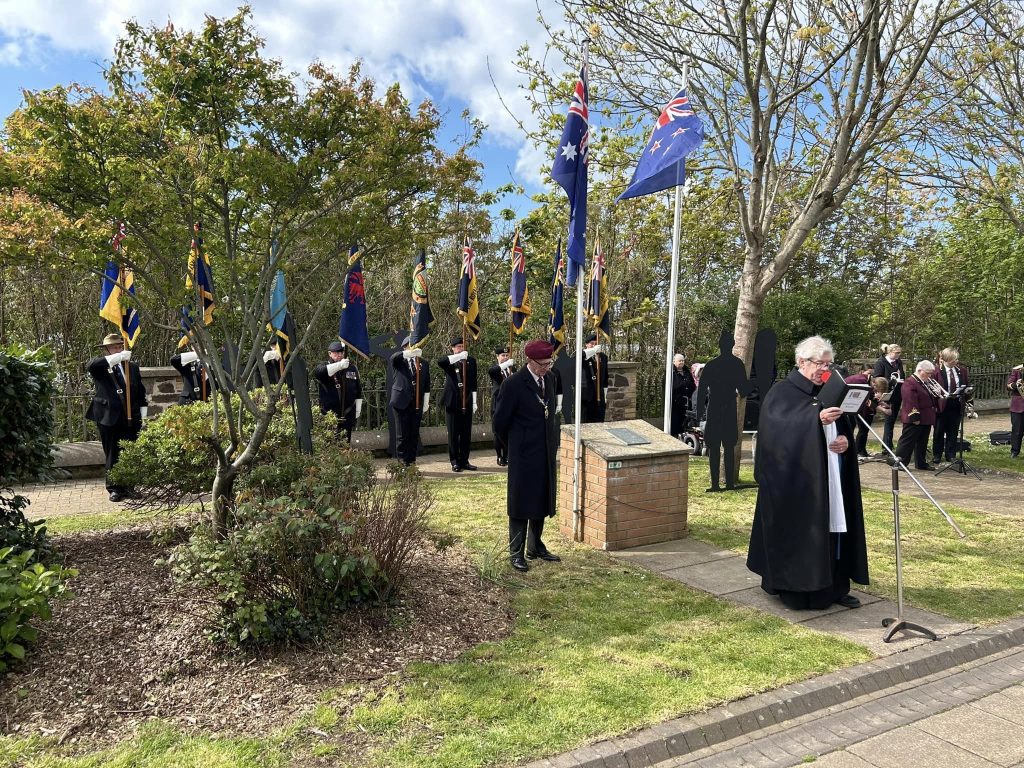
During the service, the Ode of Remembrance was recited, a profound moment that prompted reflection on the courage and fellowship of the ANZAC forces.
The emblematic Rising Sun Cap Badge and the Union Flag were prominently displayed on the event programme, symbolising the service and sacrifice of those who served under them.
Local dignitaries laid wreaths, and a two-minute silence was observed, offering a chance for personal reflection on the cost of war and the price of peace.
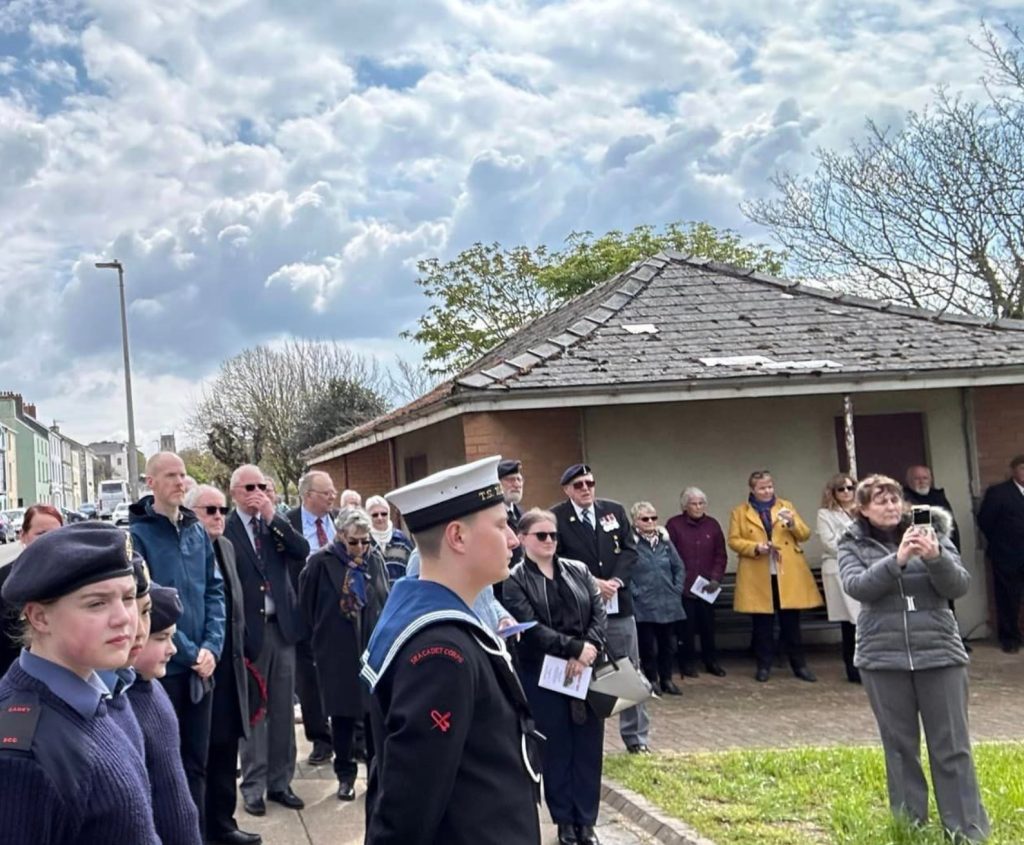
The commemoration concluded with a prayer for peace, leaving the attendees with a message of hope and a renewed commitment to the values for which the ANZAC soldiers bravely fought.
The service was not just a remembrance of past sacrifices but also a reminder of the enduring spirit of the ANZACs, which continues to inspire and guide future generations.
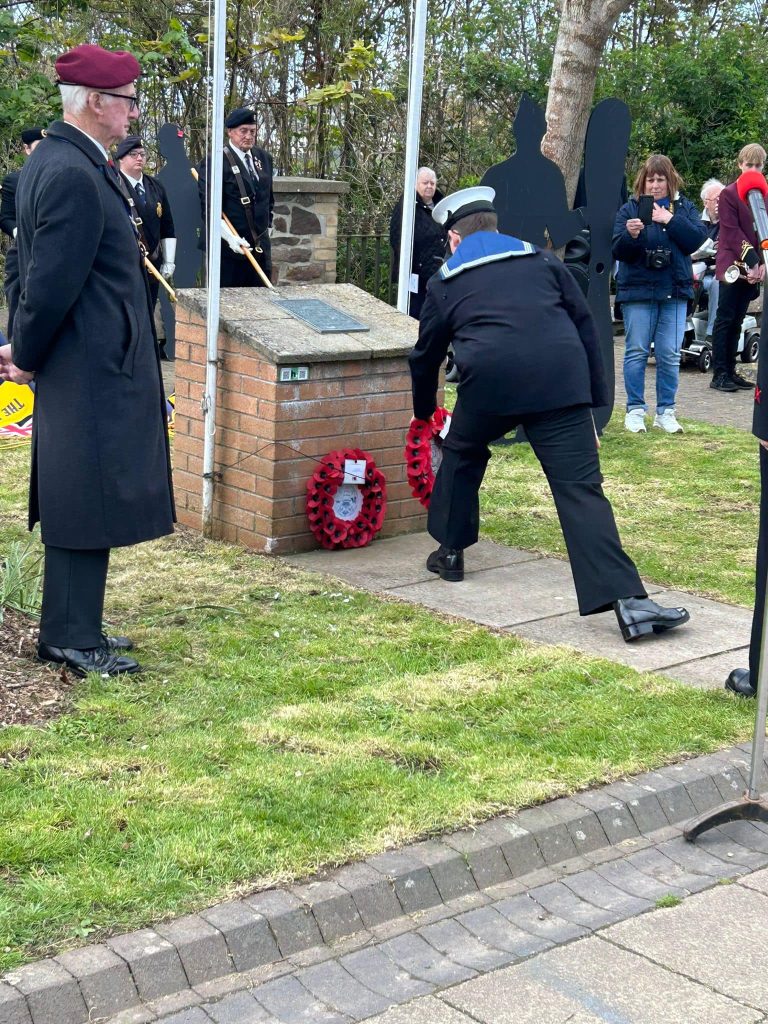
Community
Survey of Picton Castle reveals groundbreaking medieval architecture
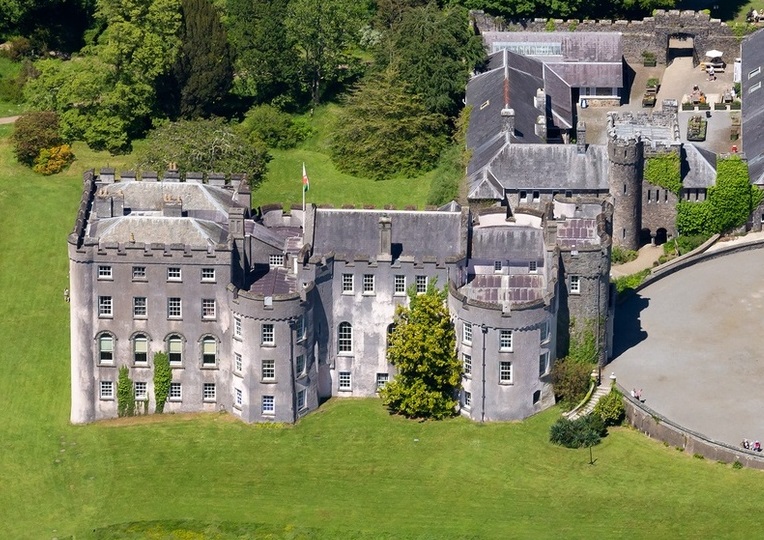
THE first ever detailed architectural survey of Picton Castle, Pembrokeshire, has revealed a medieval castle ahead of its time in terms of design and high status living. Much altered in the Georgian period, the castle was surveyed by the author, Neil Ludlow, with Phil Poucher of Heneb – Dyfed Archaeology (formerly Dyfed Archaeological Trust) and funded by the Castle Studies Trust: it reveals a sophisticated building fit for royalty.
However, the building was actually built between 1315-20 by a senior royal government official called Sir John Wogan, who held office in Pembrokeshire, Northern England and Ireland and possibly fought on a military campaign in Gascony.
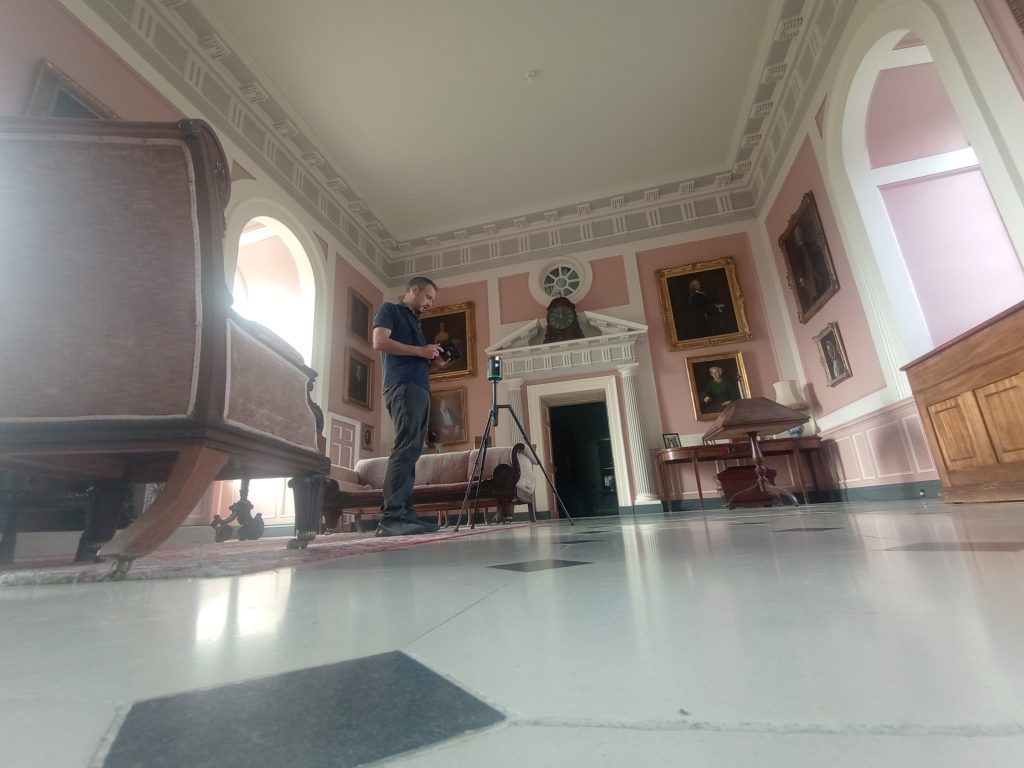
While outwardly it retains much of its medieval flavour, the interiors were extensively made over during the eighteenth century so that it now presents itself first and foremost as a Georgian country seat. But beneath this veneer, much medieval work still survives – though a lot of it is tucked away behind stud-walls, in cupboards, or is otherwise obscured.
Picton’s unique layout makes it a castle of great importance and architecturally ground-breaking for when it was built in the early fourteenth century. Most castles have at least some close parallels, but Picton is effectively one of a kind. Close study shows that it resolves as a central first-floor hall, flanked by services and a chamber-block to form a very early example of the three-unit ‘H-plan’ house.
The gatehouse – unusual in buildings of this kind – led onto an equally unusual ‘grand stairway’ to the hall; a second ground-floor entry probably led to an external kitchen and bakehouse.
The castle’s spatial disposition, access and circulation are meticulously planned, while the domestic appointments show a remarkable level of sophistication for the period, including what appear to be vertical serving-hatches between the ground floor and the service rooms above. At second-floor level, the east towers and gatehouse form two integrated suites of residential apartments either side of a chapel, in a manner firmly rooted within royal planning. The opposite pair of towers, at the west end, seem to have been united internally to form a residential chamber-block, for Wogan’s officials and guests, possibly served by latrines in the former west tower; the present partition walls are later.
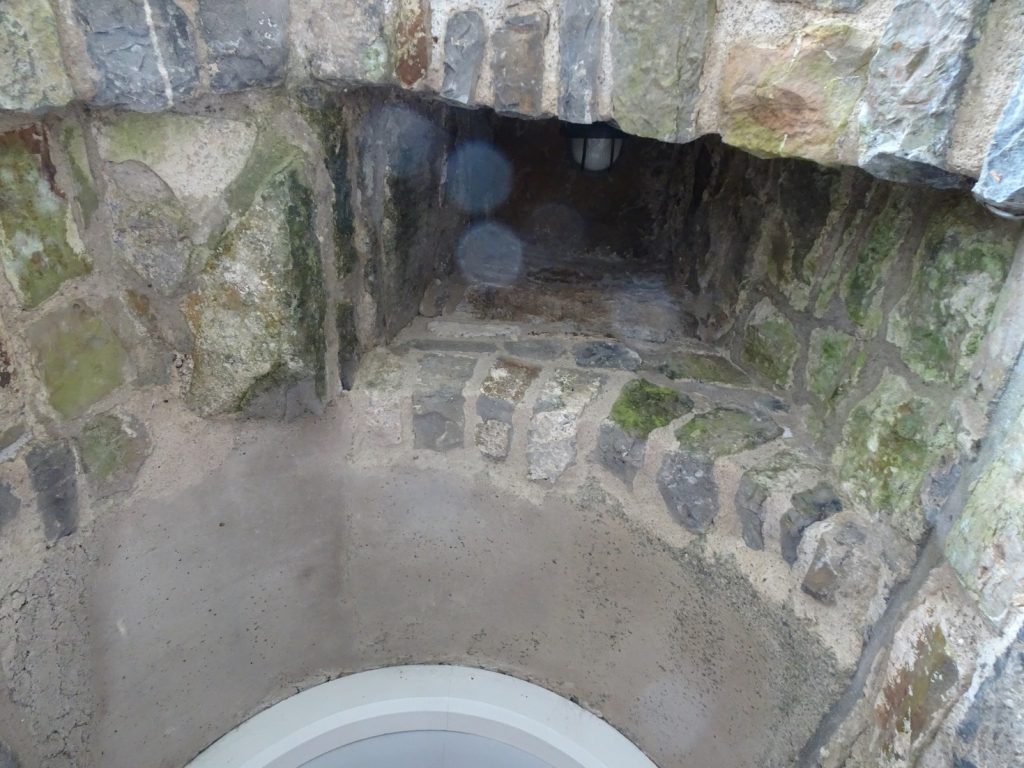
Neil Ludlow told The Pembrokeshire Herald: “The enigmatic castle at Picton in Pembrokeshire is best-known for its magnificent Georgian interiors. But beneath this veneer is a medieval castle, from around 1315-20, with a unique layout. A towered hall-block with a pioneering ‘H-plan’, it reveals elements derived from royal planning, and sophisticated domestic arrangements including serving hatches between the floor levels. These innovations show it to have been a castle that was ahead of its time.”
Castle Studies Trust Chair of Trustees Jeremy Cunnington added: “The Castle Studies Trust is delighted to have funded the first ever detailed survey of Picton Castle and to have learned so much more about the medieval form of this unique building.”
Dr Rhiannon Talbot-English, Director at Picton Castle Trust told this newspaper: “Picton Castle has always been something of an enigmatic mystery: hidden gothic alcoves and arches, secret spiral staircases and untouched medieval Undercroft. Picton Castle Charitable Trust is extremely grateful to the Castle Studies Trust for its generous financial support which has enabled this research to be undertaken and we look forward to sharing this new knowledge with the public in a new exhibition about the early castle.”
Community
Solemn tributes at Freshwater West for WWII maritime tragedy

IN an emotional gathering at Freshwater West, Pembrokeshire, the public and veterans convened on April 29, to honour the memory of the 85 souls lost in the tragic sinking of Landing Craft, Gun (LCG) 15 and LCG 16 during a brutal storm in April 1943.
The memorial service took place near the scenic, surf-popular beach, where the community assembled to reflect on the calamity that struck during a perilous wartime operation.
The service highlighted the sacrifices made by those aboard the LCGs, as well as six valiant crew members from the HMS Rosemary, who perished while attempting a daring rescue amidst the tempest.
Originally designed as Landing Craft, Tanks (LCTs), LCG 15 and LCG 16 were converted at Belfast’s Harland & Wolff shipyard to support amphibious operations by equipping them with heavy artillery.
Their redesign included the installation of two 4.7 inch guns intended for use during D-Day, suggesting that, had they survived, these crafts and their crews could have played a pivotal role in the Normandy Landings.
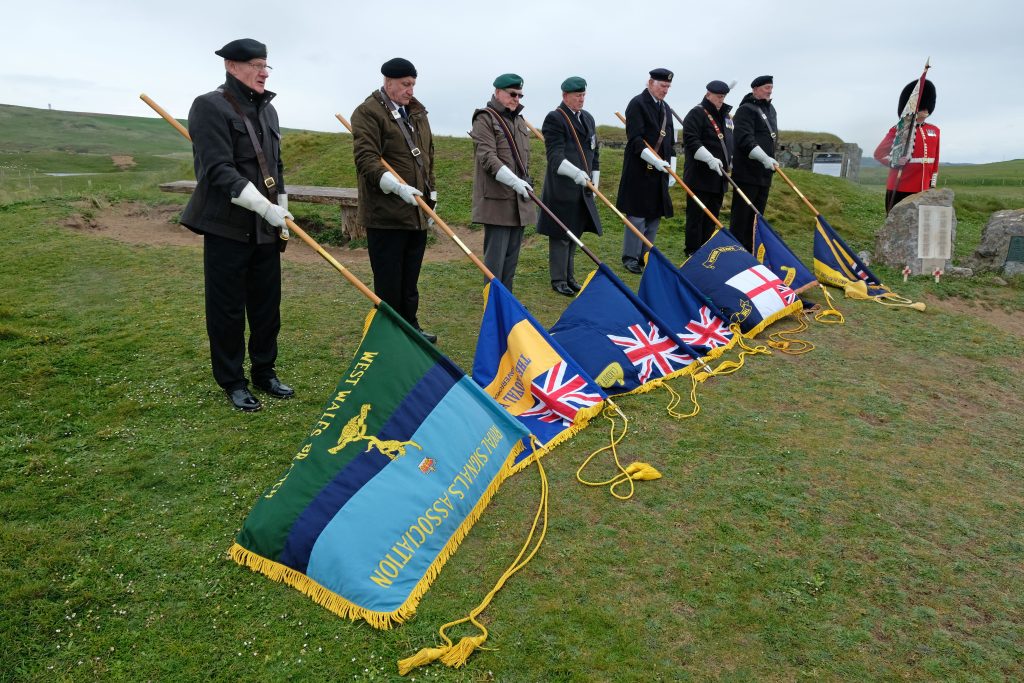
The crafts were en route to Falmouth when they encountered severe weather off the coast of Freshwater West.
Compounded by their flat-bottomed design, which was ill-suited for rough seas, both vessels tragically succumbed to the stormy conditions.
Denied shelter at Fishguard, they were compelled to continue towards Milford Haven, a decision that ultimately led to their sinking.

Today, the wrecks of LCG 15 and LCG 16 lie as protected war graves, and a poignant memorial stands overlooking the beach, a testament to the bravery and enduring legacy of the men lost to the sea.
Visitors to the memorial site at Freshwater West, which also hosts another commemorative marker at Thornton Cemetery in Milford Haven, can reflect upon the harrowing experiences faced by wartime naval personnel and the profound impact of their service.

The event served not only as a remembrance but also as an educational experience, particularly for younger generations unaware of the perils faced by their forebears during such tumultuous times.
The memorial at Freshwater West remains open to the public, offering a place for contemplation and respect, against the backdrop of one of Wales’ most beloved surfing beaches, where the echoes of history resonate with the sounds of the waves.
Pictures by Martin Cavaney
-

 News4 days ago
News4 days agoPolice and air ambulances at ‘serious incident’ at West Wales school
-

 Business2 days ago
Business2 days agoLargest Welsh port appoints communications and marketing director
-

 Crime4 days ago
Crime4 days agoPembrokeshire pensioner accused of 17 sexual offences against children
-

 Crime3 days ago
Crime3 days agoAll three school stabbing victims discharged from hospital, police confirm
-

 Community5 days ago
Community5 days agoCounty Hall to offer space for community banking
-

 Crime6 days ago
Crime6 days agoBrian Davis: Wanted on suspicion of commercial burglary
-

 Sport6 days ago
Sport6 days agoSwifts eyes on double.
-

 Community2 days ago
Community2 days agoSuspected explosive device found on west Wales beach













